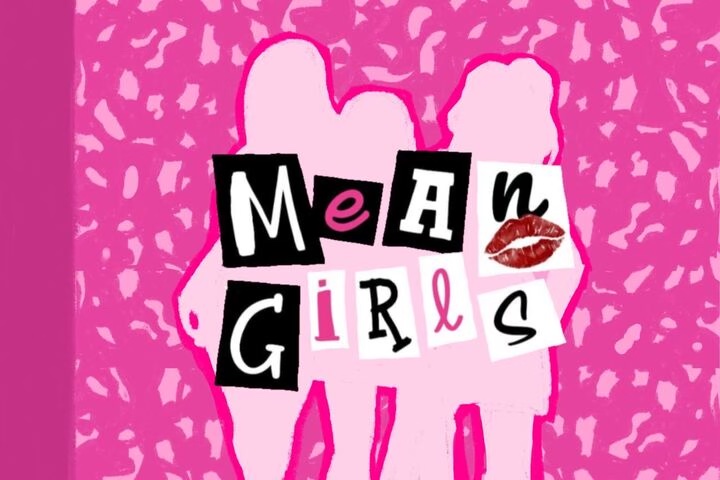As someone on the Theatre Advisory Board and in the musical, I strongly advocated for Casti to do “Mean Girls” as our fall musical. “Mean Girls” is iconic, and undoubtedly so. It has forced its way into the cultural zeitgeist of Gen Z and Millenials, providing instantly recognizable one liners, including, but not limited to, “On Wednesdays we wear pink!” and “she doesn’t even go here!”
From a cast member’s perspective, doing “Mean Girls” was a true testament of the trust our theater department has in one another. The musical version of Mean Girls takes a lot of teamwork, collaboration and of course, trust. So much trust, in fact, that we had a scene where actors fell backwards off a table into the arms of other cast members, cheerleader style.
We also knew that picking “Mean Girls” would generate interest. And it did. Tannis Hanson, director of the show, told the cast that on opening night, we had the most people in the audience she had ever seen at a Casti musical.
People know Mean Girls. In 2022, Rolling Stone ranked it as the 20th Greatest Comedy of the 21st century, citing its quotability and satirical relatability. But why did “Mean Girls” reach an astronomical amount of success? What’s so different about “Mean Girls” that it can withstand the test of time, so much so that 20 years later, there’s interest in a movie musical?
The plot of “Mean Girls” is based on the timeless stereotypes of high school cliques. We’ve seen the trope of the three high school “mean girls,” made popular first by “Heathers” (1989), and later the stereotypical cliques in Disney Channel shows. Yet, all the characters in Mean Girls, while viciously stereotyped, are also undeniably three dimensional.
At its core, Mean Girls allowed for an incredibly important message to be delivered in a palatable way. The clichéd line that still remains true: be yourself.
In the musical, the Queen Bee, Regina George herself, is initially depicted as cold, manipulative and, of course, mean. And while these traits never really change in Regina, as the movie progresses, we have sympathy for Regina as we watch her struggle with insecurities in her body and social status.
Meanwhile, Cady, the archetypal new kid, wants so desperately to fit in that she makes bad decisions and ultimately hurts the people who care about her the most. When she arrives at North Shore High, she is depicted as self-reliant and confident, and looks down upon the Plastics and other students who are so obsessed with the social hierarchies controlling the school. However, she succumbs to the desire Mean Girls director Tina Fey argues we all have: the need to fit in.
Cady molds herself to fit the expectations of the many cliques at school, but ends up disliked by everyone. Ultimately, she redeems herself by returning to the person she was when she arrived at North Shore, with the lessons she learned along the way.
In essence, “Mean Girls” stands as more than just a teen comedy. Its enduring popularity among high schoolers lies in its ability to capture the universal struggles of adolescence, addressing issues of identity, friendship, bullying, and societal expectations. The musical demonstrates the universal truth of the high school journey: that regardless of what we say, at our core we just want to fit in.



